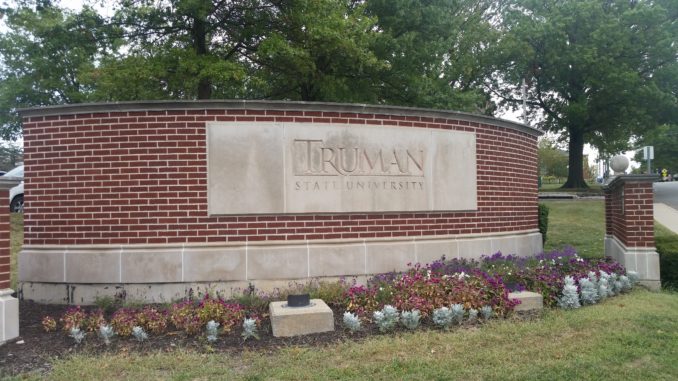
In a day and age where electronics rule people’s lives, it’s interesting to see that face-to-face communication still dominates in the realm of politics, particularly when campaigning.
Students affiliated with both the Democratic and Republican parties took action this summer and participated in various campaigns, all of which required students to do more than create politically charged posts on their social media channels.
“People are more receptive to a face that looks like mine, that’s young and a person of color,” said sophomore Reece Ellis, vice president of College Democrats. “They want to hear what I have to say, and I feel like I have a bigger impact with face-to-face meetings.”
Ellis said getting offline has helped him meet different groups of people including the women from Moms Demand Action, a group trying to bring gun sense in America.
Senior Korbin Keller also found that meeting people face-to-face has been more productive than using social media. He said he wants to be understanding and to be understood, and it is easier if the person is in front of him instead of typing behind a screen. Hiding behind a device can also lead to more hostile behavior, whereas meeting in the real world can be less dramatic, Keller said.
“People can be more humble and gentle in person instead of trying to slug it out in the comment section,” Keller said.
Ellis tried to appear at every major political event in the area to talk to current and potential voters, such as attending Missouri Rep. Bruce Franks Jr.’s march and Claire McCaskill’s campaign event with Sen. Cory Booker.
This summer, Ellis worked for Civitas, an educational-based nonprofit and non-partisan organization, where he traveled to Washington, D.C., to work on a campaign finance project. He interviewed the Federal Election Commission, the Center for Responsive Politics and Chuck Raasch, the Washington correspondent for the St. Louis Post-Dispatch. He canvassed to oppose Proposition A and support Sen. McCaskill. Ellis also contributed to Occasional Planet, where he interviewed candidates running in Missouri’s 2nd Congressional District.
Ellis found that some of the issues Democrats are concerned about include gun control and trade, specifically tariffs recently imposed by the President. Democrats are also concerned about healthcare since former Gov. Eric Greitens did not expand Medicaid, and Ellis said the lack of funding in Missouri has caused many independent emergency rooms and rural hospitals to close, leaving communities without access to healthcare. He also said Democrats expect healthcare premiums to rise 15-20 percent because President Donald Trump repealed the Individual Mandate. Democrats are mainly keeping an eye on the Missouri Senate race, as well as the governor’s race in Illinois.
Junior Shane Loewenstein is a GOP regional field director, one of several that cover different regions in the state. He is responsible for the party’s activities in Northeast Missouri, which stretches from Kirksville to Hannibal, and he often travels back and forth. Throughout the summer, he worked on building a sustainable ground team to help elect Josh Hawley and other Republicans in November. Loewenstein’s job is to gather neighborhood teams made of volunteers and train them how to become political operatives. He said he is working to change the role of field director from someone who barked down orders at volunteers to someone who actually trains volunteers and gives them various responsibilities.
“It’s chaotic at first, since there’s not really any assigned roles, but we’re starting to get into that zone where I assign a team leader and core members that have specific responsibilities,” Loewenstein said.
He also said he is focusing on organizing on the ground level, such as inviting volunteers to learn how to knock on doors and survey effectively.
“By teaching people how to become self-sufficient, they can help with midterms and future elections,” Loewenstein said.
Keller also worked with the Republican Party this summer as the campaign manager for Cindy O’Laughlin, a Republican candidate for Missouri Senate District 18, which happens to be Truman’s district. He accompanied O’Laughlin on campaign trips, took notes of her meetings with people, drafted campaign emails and managed social media. Keller was also responsible for writing fundraising letters, knocking on doors to tell people about O’Laughlin and putting up signs around the district, which was made up of 14 counties. Keller’s efforts were successful as O’Laughlin won the primary on Aug. 7.
Keller said he tries to talk to both younger and older people about politics, but during the summer he mainly talked to older people because school was out of session. He said older Republicans were surprised to hear he was conservative like them.
“Most of them have an understanding that college kids are liberal, progressive or anti-Trump, so they find it surprising to talk to someone my age who is involved in politics and is conservative and usually agrees with them,” Keller said.
Keller said that Missouri Republicans are concerned about taxes, local schools having control over curriculum, defending gun rights, anti-abortion laws and religious freedom.
Despite differences in policies and views, Ellis said everyone’s voice in politics is important, and students can be politically active by joining groups and talking to people both in person and on social media.
“We can’t have a functioning democracy if people aren’t making their voices heard, and you can make your voice heard not just by voting but by being active,” Ellis said. “There are ways of being active on campus no matter what political party you belong to.”
